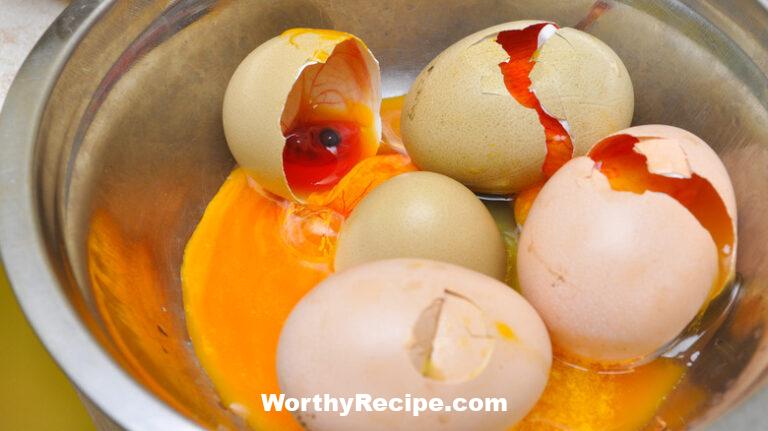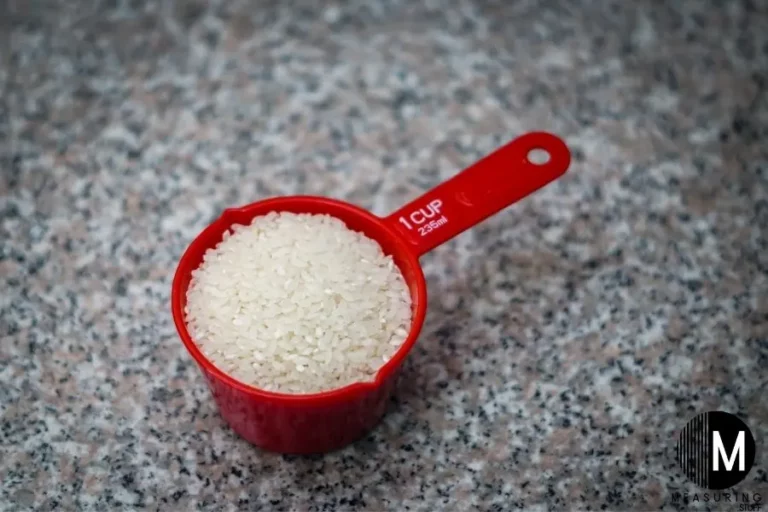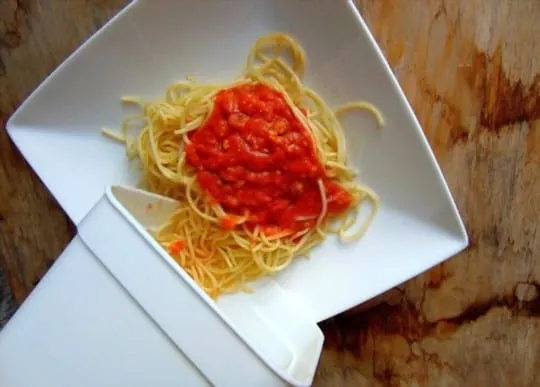When it comes to natural hair lightening remedies, lemon juice and baking soda are often hailed as the dynamic duo. But can you really mix these two ingredients to achieve lighter locks? Let’s find out.
Key Takeaways:
- Mixing lemon juice and baking soda can create a natural hair mask for lightening hair.
- The combination of these ingredients helps balance the scalp’s pH levels and control oil production.
- Using this mixture in moderation is crucial to prevent hair damage.
- Apply the mixture once a week or once a month, depending on your hair type.
- Results may vary depending on your hair color and texture.
Benefits of Using Baking Soda and Lemon Juice for Hair
When it comes to maintaining healthy hair, incorporating baking soda and lemon juice into your hair care routine can offer numerous benefits. These natural ingredients work together to address common hair concerns such as dandruff, oily hair, and product buildup. Let’s explore the advantages of using baking soda and lemon juice for your hair.
Dandruff Control
Baking soda has alkaline properties that help balance the pH levels of the scalp. By regulating the pH, it can alleviate dandruff and reduce itchiness. Lemon juice, with its antibacterial properties, complements this by effectively combating fungal infections that may contribute to dandruff. The combination of these ingredients creates a powerful solution for maintaining a flake-free scalp.
Oily Hair Management
If you struggle with oily hair, the mixture of baking soda and lemon juice can help control excess oil production. Baking soda acts as a natural absorbent, soaking up the excess oil from the scalp and hair. Lemon juice, on the other hand, helps to balance the scalp’s sebum production. By incorporating these ingredients into your hair care routine, you can enjoy cleaner, fresher-looking hair between washes.
Product Buildup Removal
Over time, hair products can leave behind residue that weighs down the hair and makes it appear dull. Baking soda and lemon juice can effectively remove this buildup, restoring your hair’s natural shine and manageability. The alkaline nature of baking soda breaks down product residues, while lemon juice’s acidic properties help clarify the hair strands, leaving them refreshed and revitalized.
| Benefits | Baking Soda | Lemon Juice |
|---|---|---|
| Dandruff Control | ✓ | ✓ |
| Oily Hair Management | ✓ | ✓ |
| Product Buildup Removal | ✓ | ✓ |
By incorporating baking soda and lemon juice into your hair care routine, you can effectively address dandruff, oily hair, and product buildup. Enjoy the benefits of these natural ingredients and achieve healthier, more vibrant hair.
How to Use Baking Soda and Lemon Juice for Hair
When it comes to incorporating baking soda and lemon juice into your hair care routine, there are a few different methods you can try. One simple way is to create a hair mask by mixing 1 tablespoon of baking soda and 1 tablespoon of lemon juice. Wet your hair with warm water, then massage the paste into your scalp and work it through your hair. Leave it on for 5-10 minutes, then rinse thoroughly with cool water and follow up with conditioner.
Another technique is to mix lemon juice with water or chamomile tea to create a spray. You can then apply this mixture to your hair, focusing on the areas you want to lighten. After application, sit in the sun for a couple of hours to let the lemon juice and sun’s rays work their magic. Rinse your hair thoroughly and follow up with a deep conditioning routine to maintain its health.
It’s important to note that using baking soda and lemon juice for hair should not be done too frequently, as these ingredients can be drying with overuse. Limit your treatments to once every two weeks or once a month, depending on your hair’s texture and sensitivity. Additionally, you can explore other DIY hair care recipes, such as a hair lightening spray, a baking soda and lemon juice deep cleanse, or a baking soda and hydrogen peroxide clarifying shampoo, to enhance your hair care routine with natural ingredients.
Table: Recommended Frequency of Baking Soda and Lemon Juice Hair Treatments
| Hair Type | Treatment Frequency |
|---|---|
| Natural Hair | Once every two weeks |
| Normal Hair | Once a month |
| Dry or Damaged Hair | Once every two months |
As with any hair care routine, it’s essential to listen to your hair and adjust the frequency based on its needs. If you notice any signs of dryness or damage, consider reducing the frequency or seeking professional advice. By using baking soda and lemon juice in moderation and following appropriate precautions, you can enjoy the benefits of these natural ingredients and maintain healthy, beautiful hair.
Does Lemon Juice and Baking Soda Lighten Hair?
Yes, lemon juice and baking soda can lighten hair. Lemon juice contains citric acid, a natural bleaching agent, while baking soda helps lift hair dye. When combined, these two ingredients work effectively to lighten hair color. To lighten hair with lemon juice, you can mix it with chamomile tea water, spray it on your hair, and sit in the sun for 30 minutes to an hour. The sun’s rays activate the lightening effect of the lemon juice. Alternatively, you can mix lemon juice with baking soda to create a paste, apply it to your hair, and leave it on for a few minutes before rinsing. However, it’s important to note that results may vary depending on your hair color and texture, as well as the strength of the lemon juice and the duration of the treatment.
Table: Comparing Hair Lightening Methods
| Method | Ingredients | Lightening Effect | Duration |
|---|---|---|---|
| Lemon Juice + Chamomile Tea | Lemon juice, chamomile tea | Moderate | 30 minutes to 1 hour |
| Lemon Juice + Baking Soda | Lemon juice, baking soda | Mild | A few minutes |
| Chemical Hair Lighteners | Chemical bleaching agents | Strong | Depends on product |
While lemon juice and baking soda can lighten hair naturally, it’s important to keep in mind that the level of lightening achieved may be more subtle compared to chemical hair lighteners. It may take multiple treatments or regular application over time to see noticeable results. Additionally, it’s crucial to consider your hair’s natural color and texture, as well as the potential drying effects of these ingredients. Using a deep conditioning treatment after lightening treatments can help minimize dryness and maintain the health of your hair.
Does Baking Soda and Lemon Juice Damage Hair?
While baking soda and lemon juice can provide benefits for your hair, it is important to be cautious about using them together. The alkaline nature of baking soda can strip away essential oils from the hair, leading to dryness and dullness if used excessively. Lemon juice, on the other hand, is highly acidic and can disrupt the natural pH balance of the hair, potentially causing damage and breakage.
To minimize the risk of hair damage, it is crucial to dilute these ingredients before applying them to your hair. Diluting lemon juice with chamomile tea or water can help prevent excessive dryness. Additionally, it is recommended to use baking soda and lemon juice in moderation and to avoid leaving the mixture on for extended periods of time.
If you are concerned about the potential damage that baking soda and lemon juice can cause, you may want to explore alternative hair care options. There are numerous natural ingredients and DIY recipes that can help maintain the health of your hair without the risk of long-term damage.
| Precautions | How to Minimize Hair Damage |
|---|---|
| Dilute lemon juice with chamomile tea or water | Limit the frequency of usage |
| Avoid applying the baking soda paste directly to the scalp | Follow up with a deep conditioning treatment |
| Moisturize the hair regularly |
By taking these precautions and being mindful of the potential risks, you can enjoy the benefits of baking soda and lemon juice for your hair without compromising its health.
How to Lighten Hair with Lemon Juice
If you have blonde or light brown hair and want to lighten it naturally, lemon juice can be a great option. Here’s a step-by-step guide on how to lighten hair with lemon juice:
- Mix freshly squeezed lemon juice with water or chamomile tea in a spray bottle.
- Apply the mixture to your hair, focusing on the areas you want to lighten.
- Sit in the sun for at least a couple of hours to let the lemon juice and sun’s rays work their magic.
- Rinse your hair thoroughly and follow up with a deep conditioning routine.
Please note that lemon juice generally does not work for dark hair and may result in the appearance of red-orange tints instead. It’s also important to remember that lemon juice can be drying, so diluting it with water or chamomile tea is crucial to prevent dryness and potential damage to your hair. Remember to moisturize your hair after using lemon juice and to limit the frequency of treatments to maintain hair health.
Table: Hair Lightening Options
| Method | Effectiveness | Suitable Hair Types |
|---|---|---|
| Lemon Juice and Sun Exposure | Lightens hair color | Blonde or light brown hair |
| Hydrogen Peroxide | Significantly lightens hair color | Blonde or light brown hair |
| Chamomile Tea Rinse | Mildly lightens hair color | Blonde or light brown hair |
| Honey and Cinnamon Mask | Mildly lightens hair color | Blonde or light brown hair |
Experimenting with different natural hair lightening methods can help you achieve the desired results. However, it’s important to keep in mind that the effectiveness of these methods may vary depending on individual hair color and texture. It’s always a good idea to consult with a professional hairstylist before attempting any drastic changes to your hair.
Precautions When Using Lemon Juice and Baking Soda for Hair
While using lemon juice and baking soda can provide various benefits for your hair, it is essential to take certain precautions to prevent dryness and hair damage. Lemon juice, being acidic, has the potential to dry out the hair if not diluted properly. To ensure a safe application, it is recommended to dilute the lemon juice with chamomile tea or water before use. This helps to maintain the moisture balance of the hair and prevents excessive dryness.
Another important precaution is to avoid applying the baking soda paste directly to the scalp. Baking soda can be quite alkaline and can disrupt the natural pH balance of the scalp if used excessively or in concentrated form. Instead, focus on applying the mixture to the lengths and ends of the hair, avoiding the root area. This will minimize the risk of dryness and maintain the overall health of your hair.
It is also crucial to limit the frequency of using lemon juice and baking soda on your hair. While these ingredients can provide benefits, excessive use can lead to dryness, breakage, and hair discoloration. It is recommended to use this mixture once every two weeks or once a month, depending on your hair’s texture and sensitivity. This will give your hair time to recover and prevent any potential damage.
Preventive Tips for maintaining healthy hair while using lemon juice and baking soda:
- Dilute lemon juice with chamomile tea or water to prevent excessive dryness.
- Avoid applying the baking soda paste directly to the scalp to maintain the scalp’s natural pH balance.
- Limit the frequency of using lemon juice and baking soda to avoid dryness, breakage, and hair discoloration.
- Follow up with a deep conditioning treatment after using lemon juice and baking soda to restore moisture and nourishment to the hair.
Take care of your hair
By following these precautions and incorporating lemon juice and baking soda into your hair care routine in a responsible manner, you can enjoy the benefits they offer while minimizing the risk of dryness, damage, and discoloration. Remember, everyone’s hair is unique, so it’s important to listen to your hair’s needs and adjust your usage accordingly. With proper care and attention, you can maintain healthy, vibrant hair.
| Precautions | Benefits |
|---|---|
| Dilute lemon juice with chamomile tea or water | Balance the pH levels of the scalp |
| Avoid applying baking soda paste directly to the scalp | Control oil production |
| Limit frequency of usage | Remove product buildup |
| Follow up with deep conditioning treatment | Improve dandruff and itchy scalps |
Conclusion and DIY Hair Care Recipes
In conclusion, incorporating lemon juice and baking soda into your hair care routine can offer natural benefits, including hair lightening, scalp pH balancing, deep cleansing, and alleviation of dandruff and oily hair. However, it is crucial to use these ingredients in moderation to prevent hair damage. Remember to dilute lemon juice properly and avoid applying the baking soda paste directly to your scalp.
If you’re looking to enhance your hair care regimen with natural ingredients, we recommend trying various DIY recipes. For hair lightening, create a spray by mixing freshly squeezed lemon juice with water or chamomile tea. Apply it to desired areas and let the sun’s rays work their magic. For deep cleansing, combine baking soda and lemon juice to form a paste, which can be gently massaged into your hair and rinsed thoroughly. Lastly, if you’re in need of a clarifying shampoo, mix baking soda and hydrogen peroxide to cleanse your hair and remove product buildup.
Experiment with these DIY recipes to find the perfect combination for your hair type and enjoy the benefits of using baking soda and lemon juice in your hair care routine. Embracing natural ingredients can help achieve healthier, vibrant hair while minimizing the use of harsh chemicals. Remember, a little DIY creativity can go a long way in maintaining beautiful and naturally nourished hair.
FAQ
Can You Mix Lemon Juice and Baking Soda to Lighten Hair?
Yes, lemon juice and baking soda can be mixed together to lighten hair naturally.
What are the Benefits of Using Baking Soda and Lemon Juice for Hair?
Baking soda and lemon juice can balance the pH levels of the scalp, control oil production, remove product buildup, improve dandruff and oily scalps, and promote hair growth.
How to Use Baking Soda and Lemon Juice for Hair?
Create a hair mask by combining 2 tablespoons of baking soda with the juice of half a lemon and enough water to form a paste. Apply to hair and scalp, leave on for 15-20 minutes, then rinse and condition. Limit usage to once a week or once a month, depending on hair type.
Does Lemon Juice and Baking Soda Lighten Hair?
Yes, lemon juice contains citric acid, a natural bleaching agent, and when combined with baking soda, it can lighten hair color. Results may vary depending on hair color and texture.
Does Baking Soda and Lemon Juice Damage Hair?
Excessive use of baking soda and lemon juice can potentially damage hair, as baking soda can strip essential oils and lemon juice, being highly acidic, can disrupt the hair’s natural pH balance. It is important to use these ingredients in moderation and follow up with deep conditioning treatments.
How to Lighten Hair with Lemon Juice?
To lighten hair with lemon juice, mix freshly squeezed lemon juice with water or chamomile tea in a spray bottle, apply to hair, and sit in the sun for a couple of hours. Rinse thoroughly and follow up with a deep conditioning routine. Please note that lemon juice generally works best for those with blonde or light brown hair.
What Precautions Should I Take When Using Lemon Juice and Baking Soda for Hair?
Dilute lemon juice with chamomile tea or water, avoid applying the baking soda paste to the scalp, limit usage to prevent dryness, and hair damage. Moisturize the hair and take precautions to prevent hair discoloration.





